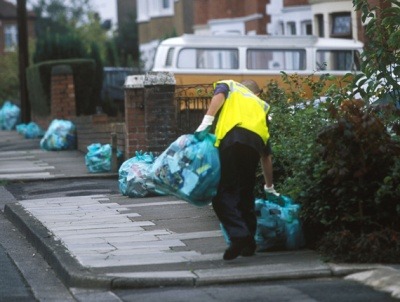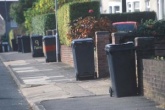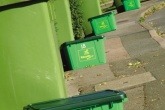Waste industry ‘essential’ to UK during coronavirus outbreak, says ESA
Waste sector workers should be designated as “key workers” so that they can gain access to childcare and continue to perform vital waste service roles during the coronavirus outbreak, says the Environmental Services Association (ESA).
The trade association representing the UK’s waste and recycling industry has made the call following the government’s announcement yesterday (18 March) that all schools in England are to close from Friday in a bid to slow the spread of coronavirus, known by its proper name as Covid-19.
 While the majority of children will be expected to be cared for at home, care for children of key workers such as NHS staff will be provided at schools, and the ESA believes that waste workers should be designated at key workers so that they can also gain access to childcare and continue working.
While the majority of children will be expected to be cared for at home, care for children of key workers such as NHS staff will be provided at schools, and the ESA believes that waste workers should be designated at key workers so that they can also gain access to childcare and continue working.
Executive Director of the ESA, Jacob Hayler, said: “The current circumstances are unprecedented and with the closure of schools across the country there is a risk that essential recycling and waste services grind to a halt – allowing waste to pile up in our homes and streets.
Stating that the Department for Environment, Food and Rural Affairs (Defra) has assured it is safe for waste workers to continue working, Hayler added: “Protecting the ability of employees to come to work is our number one priority so we are urgently calling on government to classify frontline recycling and waste operatives as ‘key workers’, so they can continue to provide the vital services upon which we all rely.”
While local authority waste teams are reasonably well prepared for the disruption set to be caused by the Covid-19 outbreak, according to LARAC (Local Authority Recycling Advisory Committee) CEO Lee Marshall, services are likely to be stripped back over the coming weeks and months – Derby City Council has already suspended its garden and food waste collections due to the outbreak.
The ESA is also calling for short-term flexibility around planning and permitting conditions to allow services to continue in the event of a reduced workforce or the inability to treat waste or recycling at usual destinations. Hayler raised concerns that “strict operational and technical rules around the operation of waste sites will force otherwise functioning facilities to close” and that ESA members were looking for assurance from government that temporary unavoidable infractions will not be met with penalties, otherwise essential facilities may have to close.”
Other demands include prioritising the waste industry as a ‘critical industry’ to ensure the continued supply of necessary goods, such as fuel and reliving operators from the contractual performance penalties with the local authorities they serve, to allow them to focus on delivering services.
To ensure worker safety and hygiene, the ESA has urged workers to continue to correctly wear Personal Protective Equipment (PPE), to follow the government advice on good hygiene practice and to promptly report any symptoms of illness.
Regards to residents displaying symptoms of Covid-19, the ESA reiterated the Defra advice to double-bag any personal waste produced and to keep it separate from other waste for 72 hours.
You can read the government’s latest guidance for households self-isolating on its dedicated coronavirus advice page.






